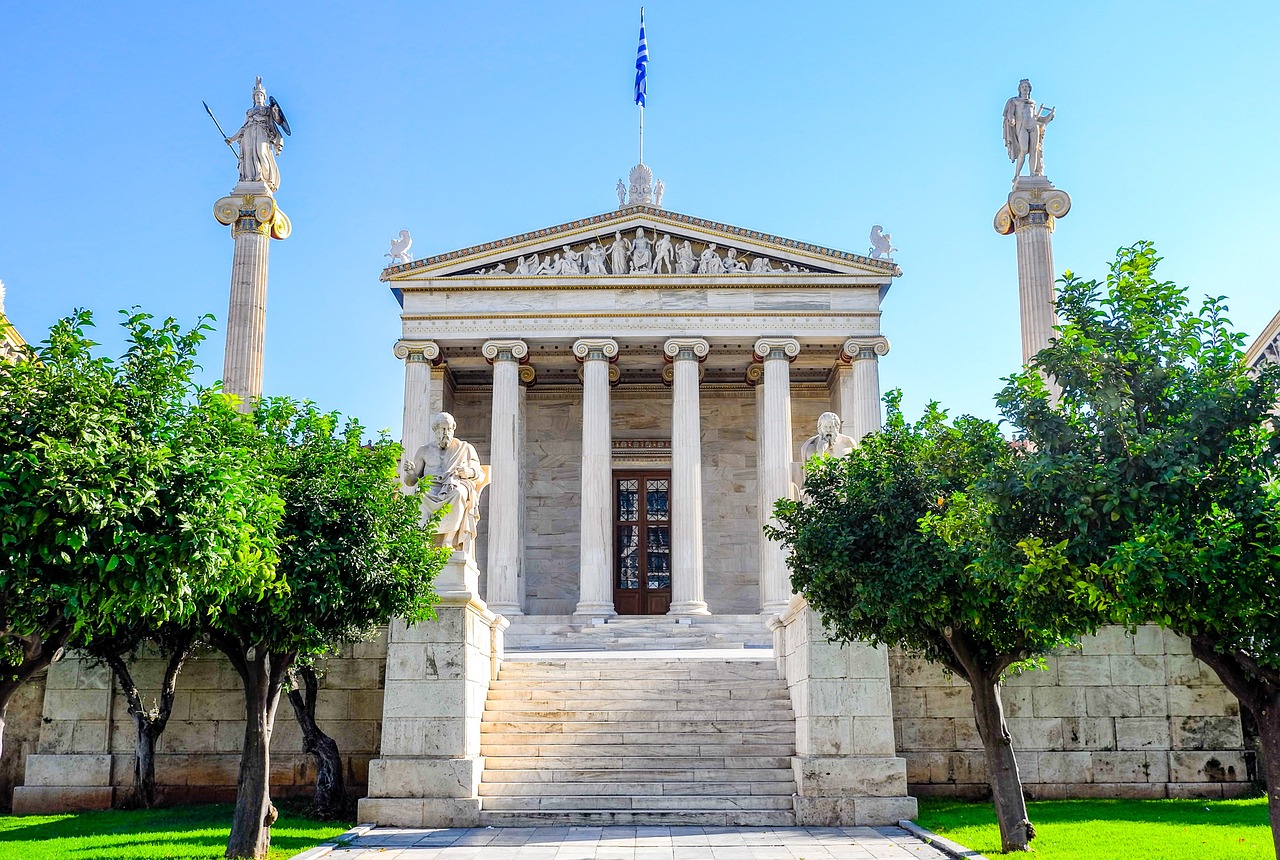Athena, a prominent figure in Greek mythology, is revered as the goddess of wisdom, strategy, and warfare, and is often lauded for her guidance in various aspects of life, particularly in matters relating to the city and its defense. Unique in many respects, she stands as a symbol of civilized society and urbanity, contrasting sharply with Artemis, who embodies the wilderness and natural realms. Some scholars argue that Athena has origins predating the Greek civilization, suggesting that her worship was appropriated by the Greeks as their society evolved, especially since their economic structure was centered around military endeavors.
The mythology surrounding Athena presents her as the offspring of Zeus, born without a mother, emerging fully formed from his forehead. An alternative myth speaks of Zeus swallowing the goddess Metis while pregnant with Athena, leading to her unique birth from him. As Zeus’s favored daughter, Athena held immense power and a revered status among the Greek pantheon. Her identity as a protector of cities is reflected in her associations with various acropolises related to the ruling powers.
Although initially not described as a virgin, the concept of virginity became integral to her identity early in her worship. This aspect contributed to her titles, such as Pallas and Parthenos. As a war goddess, Athena held a distinct position, not subject to domination by other deities like Aphrodite, thus emphasizing her unique autonomy and strength.
In Homer’s Iliad, Athena emerges as a pivotal military force, offering inspiration and support to Greek warriors. Her divine assistance is directly tied to concepts of valor and military success. While Ares, the god of war, symbolizes chaotic and violent conflict, Athena exemplified the more thoughtful and strategic elements of warfare. This distinction highlights her intellectual prowess and moral superiority, positioning her as the embodiment of martial excellence and glory.
Athena’s significant role extends to the protection of Odysseus in the Odyssey, along with assisting mythological heroes such as Perseus and Heracles. Her domain expanded from royal palaces to urban centers, with Athena becoming widely worshiped, particularly in Athens—the city that bears her name. The transformation of her status into that of a city goddess, designated as Athena Polias (Guardian of the City), occurred as Athenian society transitioned from monarchy to democracy.
In symbolism, she is often represented alongside the owl, a creature signaling wisdom, and the snake. Her most famed temple, the Parthenon, displays her contest with Poseidon for the city’s patronage, an essential mythological tale highlighting her significance in Athenian culture. Celebrations such as the Panathenaea festival were held in her honor, which marked her birthday and reinforced her status among the citizens.
As a goddess of crafts, particularly skilled in spinning and weaving, Athena also evolved to embody concepts of wisdom and moral integrity, organically reflecting her craftsmanship. She is consistently depicted in armor, wearing a helmet, and with a shield and spear—symbols of her warrior status. Major cultural figures such as sculptor Phidias and playwright Aeschylus played vital roles in representing and disseminating her image, contributing to the vibrancy of her cult. One of Phidias’s masterpieces, the chryselephantine statue of Athena Parthenos, once resided in the Parthenon, emphasizing her pivotal role in art and culture.
In summary, Athena’s legacy is marked not only by her martial skill and wisdom but also by her significant contributions to Athenian identity and the cultural narrative of ancient Greece.



